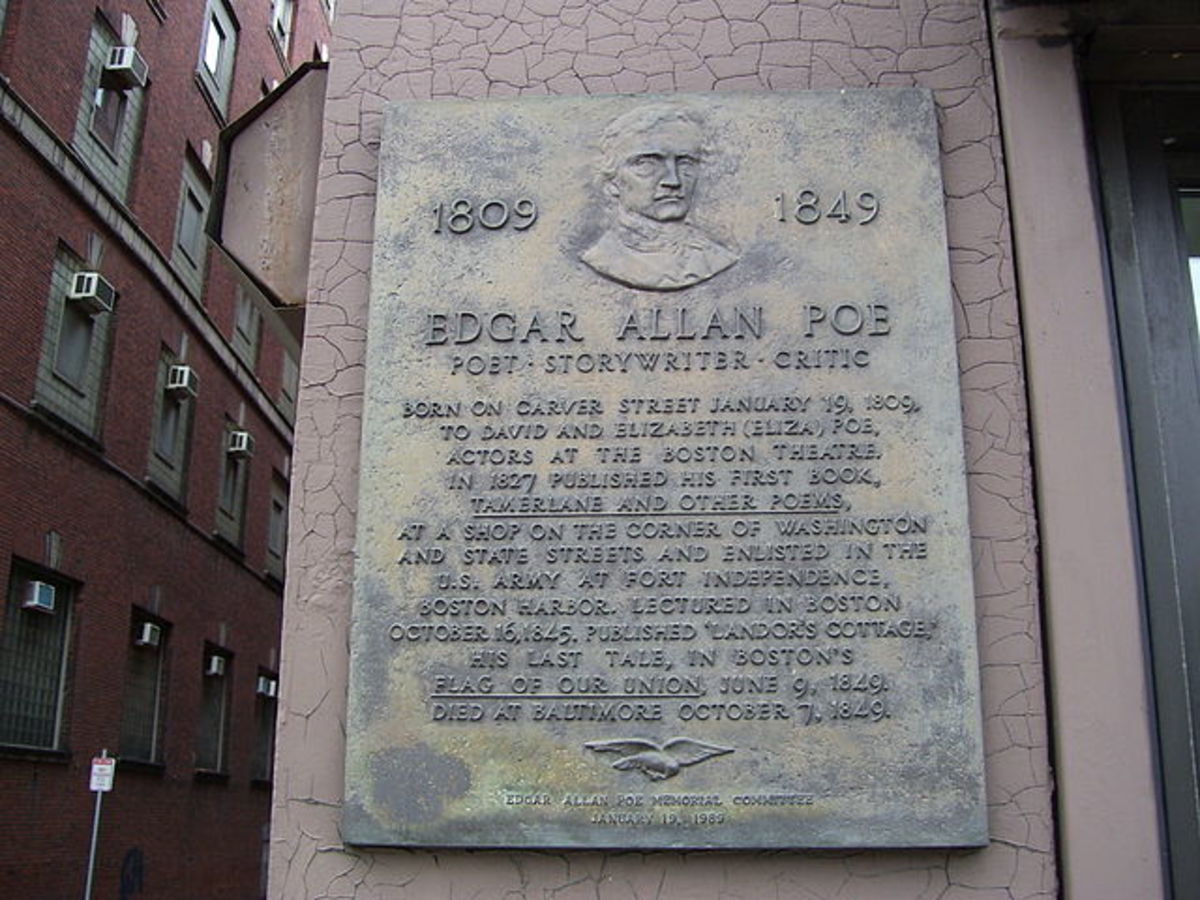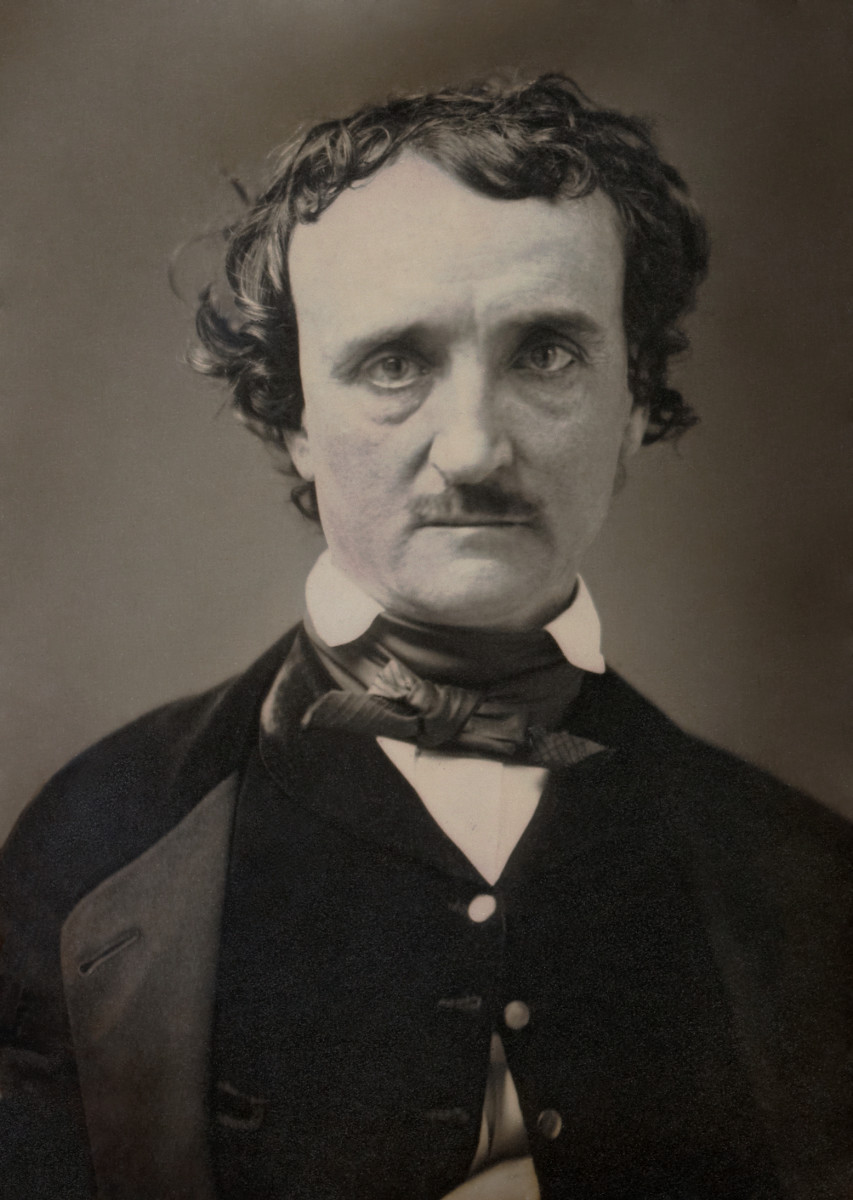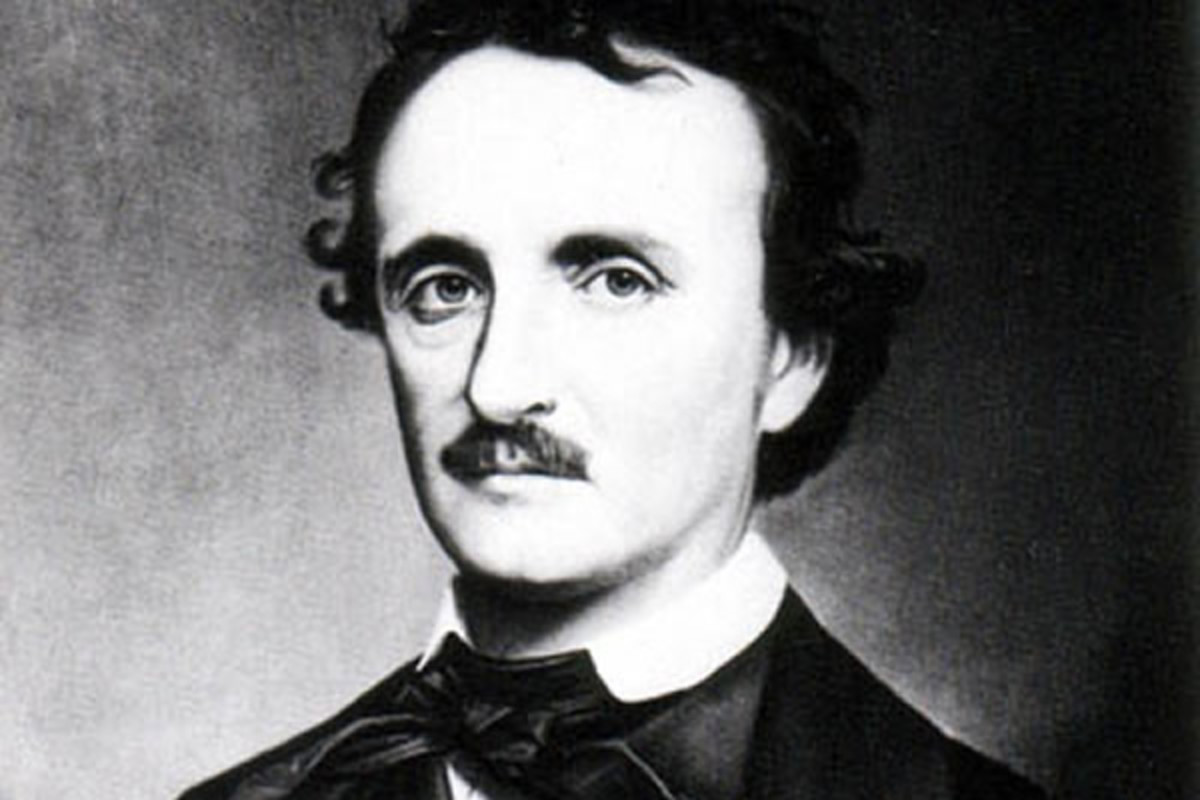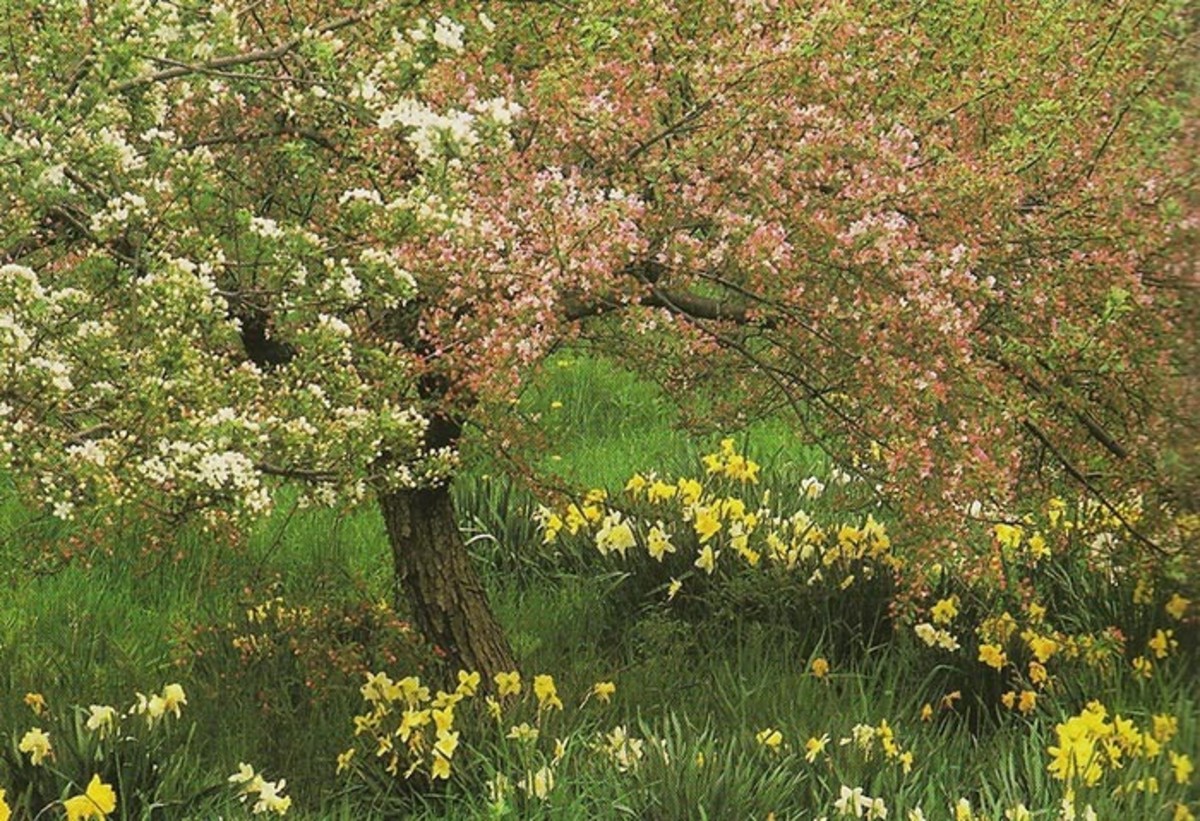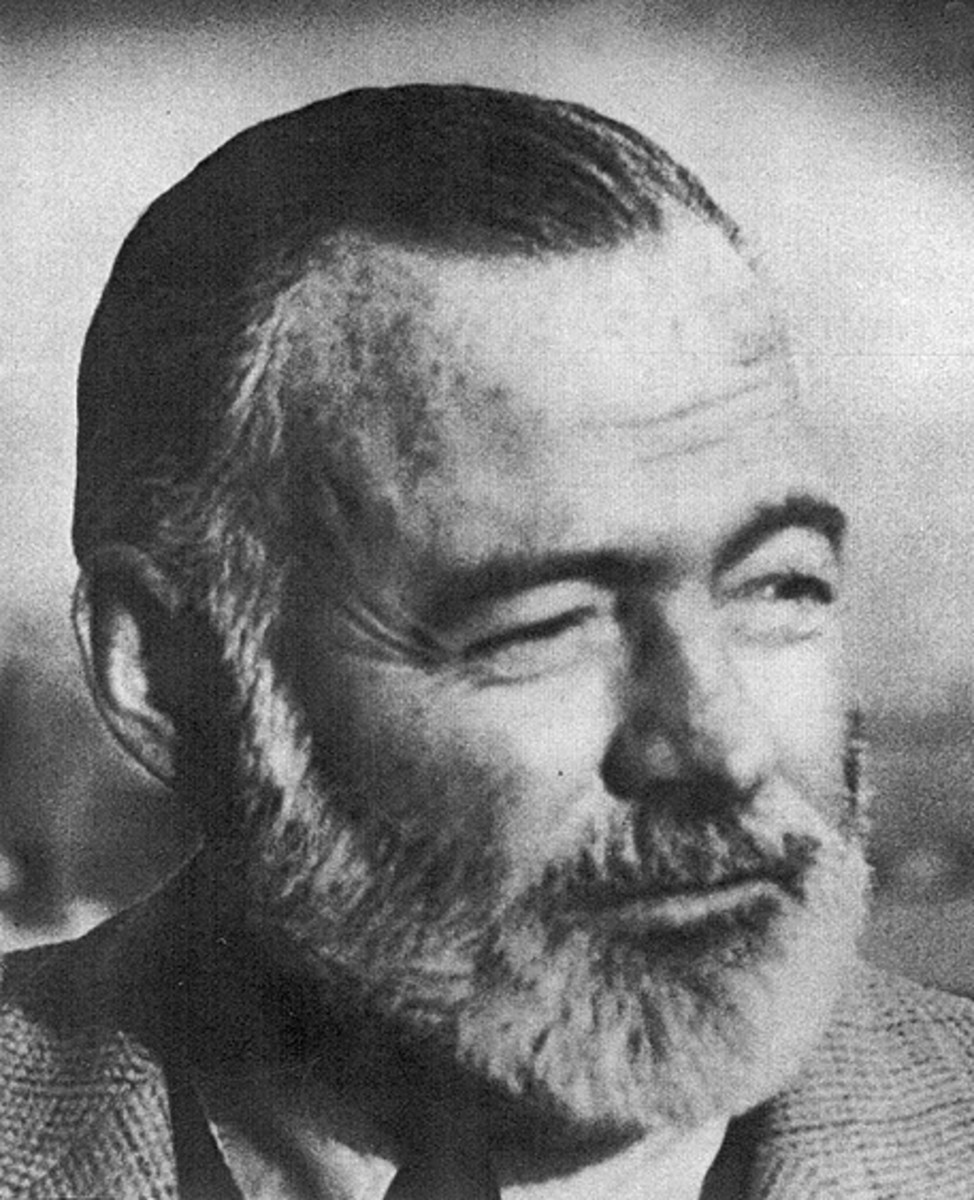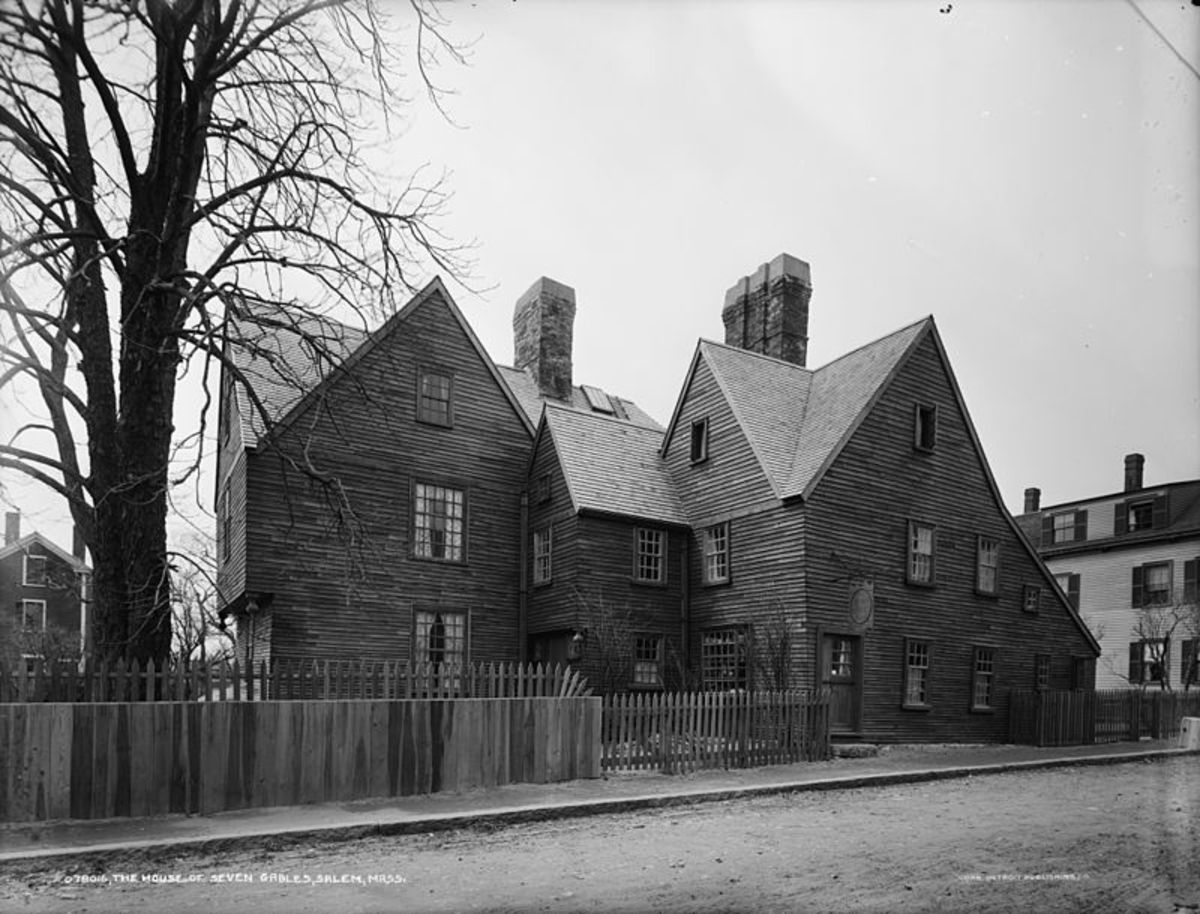- HubPages»
- Books, Literature, and Writing»
- Literature»
- American Literature
Life Sketch of Edgar Allan Poe
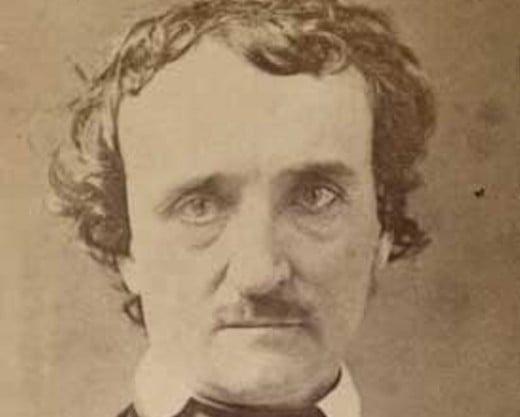
Introduction and Excerpt from "The Bells"
Edgar Allan Poe was born on January 19, 1809, in Boston, Massachusetts. His literary accomplishments have been appreciated world wide. He excelled in literary criticism, and his short fiction is credited with beginning the genre of mystery writing or detective fiction, and he has been celebrated as the father of mystery writing [1].
However, Poe’s poetry has received a mixture of critical reviews, and quite often critics denigrate Poe's style of poetry. Unfortunately, too often his life story has become the central focus in Poe studies.
Still, his achievements in the literary arts are considerable and reveal his works to be well worth a second and third look. He demonstrates clearly that he was more than a mere rimer, or "jingle man," as some of his contemporaries labeled him.
The "Jingle Man"
Edgar Allan Poe became known as the "Jingle Man" likely because of the profusion of riming words and nearly perfect rhythms that he used in his poems. It was possibly Ralph Waldo Emerson, who first dubbed Poe with that appellation; however, Walt Whitman also suggested that Poe over-employed rime as a poetic technique.
Poe's poem, "The Bells," is quite likely the poem that led these contemporaries to call Poe the "jingle man." Over the decades, critics [2] have often continued to be dismissive of Poe, just as Emerson and Whitman were:
. . . critical opinion of Poe’s verse has been mixed. Ralph Waldo Emerson dismissed him as "The Jingle Man," Jorge Luis Borges called him "a miniature Tennyson," and Henry James grumbled that "an enthusiasm for Poe is the mark of a decidedly primitive state of reflection." T. S. Eliot conceded that Poe possessed a powerful intellect but asserted that it was "the intellect of a highly gifted person before puberty." W. B. Yeats liked a few lines but thought most of the oeuvre "vulgar and commonplace," and E. L. Doctorow compared "The Raven" to Ravel’s "Bolero": "rhythmic and hypnotic on first hearing, a mere novelty everafter."
Despite the many gloomy reviews of Poe’s works, his admirers have spoken out decisively, revealing their affection for and appreciation of the Poe canon, for example, William Carlos William has opined a bit hyperbolically that the literary canon of America is firmly founded on Poe alone and remains "on solid ground."
Charles Baudelaire as well as Stéphane Mallarmé were both loyal aficionados of Poe's works.
(Please note: Dr. Samuel Johnson introduced the form "rhyme" into English in the 18th century, mistakenly thinking that the term was a Greek derivative of "rythmos." Thus "rhyme" is an etymological error. For my explanation for using only the original form "rime," please see "Rime vs Rhyme: Dr. Samuel Johnson’s Error
Excerpt from "The Bells"
I
Hear the sledges with the bells-
Silver bells!
What a world of merriment their melody foretells!
How they tinkle, tinkle, tinkle,
In the icy air of night!
While the stars that oversprinkle
All the heavens, seem to twinkle
With a crystalline delight;
Keeping time, time, time,
In a sort of Runic rime,
To the tintinnabulation that so musically wells
From the bells, bells, bells, bells,
Bells, bells, bells-
From the jingling and the tinkling of the bells . . .
To read the entire poem and also experience it as the poet placed it on the page, please visit The Academy of American Poets. The word processing system used by HubPages does not allow non-traditional spacing.
The Philosophical Poem "Eldorado"
Edgar Allan Poe's widely anthologized and recited poem, "Eldorado," alludes to a legend that popularly made its round in the nineteenth century. Poe’s delight with rime is certainly evident, but also certainly there remains much more to the poem than rime and meter.
The final stanza offers the sage advice that the paradise which all humanity seeks is first in the journey itself. Eldorado is the metaphor for that journey’s end—but the advice admonishes the "gallant knight" that to reach that coveted goal, he must never give up the search, and he must continue and take delight in that journey toward his goal.
Eldorado
Gaily bedight,
A gallant knight,
In sunshine and in shadow,
Had journeyed long,
Singing a song,
In search of Eldorado.
But he grew old—
This knight so bold—
And o’er his heart a shadow—
Fell as he found
No spot of ground
That looked like Eldorado.
And, as his strength
Failed him at length,
He met a pilgrim shadow—
‘Shadow,’ said he,
‘Where can it be—
This land of Eldorado?’
‘Over the Mountains
Of the Moon,
Down the Valley of the Shadow,
Ride, boldly ride,’
The shade replied,—
‘If you seek for Eldorado!’
James Caan reciting an excerpt from Poe’s "Eldorado" in the movie "El Dorado"
Poe's Other Writing Genres
No credible literary reputation is established overnight.
Despite the negative criticism early on regarding Poe’s facility with language, and despite the fact that critics suffering from postmodernism have continued to find fault with his work, Edgar Allan Poe has definitely taken his place among the literary greats, and his works thus remain American classics.
Short Stories
Edgar Allan Poe’s short fiction, including but not limited to"The Gold Bug," "The Murders in the Rue Morgue," "The Mystery of Marie Rogêt," and "The Purloined Letter," has exerted a permanent influence on the mystery writing genre, and Poe is often credited as the inventor of the genre of detective fiction.
Poe, like Thomas Hardy, preferred writing poetry and considered himself first of all a poet. But as most poets discover, it is their prose writings that are more likely to assist in monetary gain. So to secure an income from writing, poets may establish themselves as writers of short fiction, novels, or essays, or a combination of all.
The Philosophy of Composition
Edgar Allan Poe, in addition to poetry and short literary fiction, composed essays in criticism. His "The Philosophy of Composition" [3] reveals, in addition to his ideas regarding the process of creating text, the fascinating idea of Poe’s own favorite choice of subject matter; he asserts his claim this way:
When it most closely allies itself to Beauty: the death, then, of a beautiful woman is, unquestionably, the most poetical topic in the world—equally is beyond doubt that the lips best suited for such topic are those of a bereaved lover.
Clearly, this reasoning is responsible for his inclination to melancholy of the type so deliberately and delicately repeated in one of his most anthologized pieces, "The Raven."
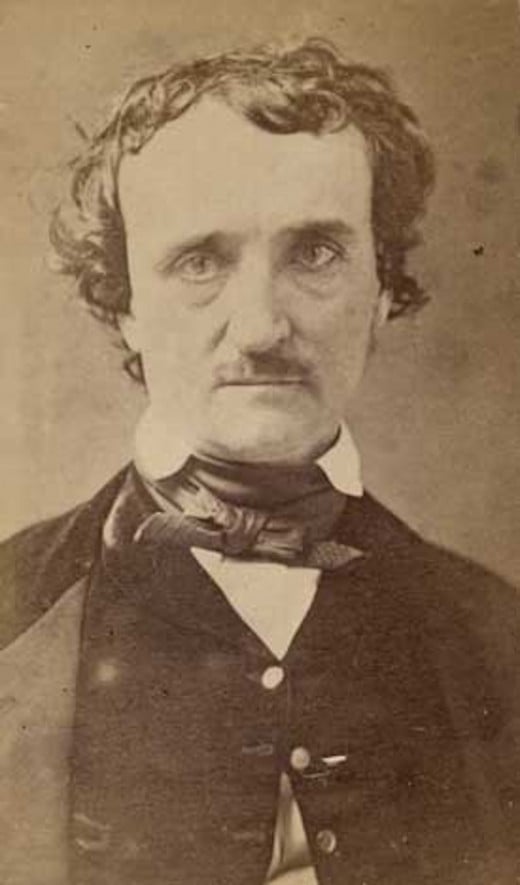
Poe, Drugs, and Death
Too much emphasis has been placed upon Poe’s alcohol and drug use. So much so that too many folks continue to link his addictions too intensely to his literary art.
Many artists in the various fields of art have fallen victim to intoxicants and drug euphoria, but as their addictions take center stage in upstaging their artistic achievement, the art world becomes poorer.
However, it does too often appear that the artist’s biography is usually more interesting to the casual observer than is his/her art. More contemporary examples are Anne Sexton and Sylvia Plath. Thus, it remains a sad fact that Poe’s character as a dark figure has attracted more attention than his literary accomplishments.
Despite Poe’s reputation as the father of detective or mystery fiction, to experience the real Poe, readers must also experience his poetry and as they do, they will surely have to concede that he was much more than his contemporaries detected; his works prove that Edgar Allan Poe’s mind rendered him a much more profound thinker than the appellation, the "jingle man," would reveal.
Poe died on October 7, 1849, in Baltimore. His death is shrouded in mystery [4], and various theories have been proffered regarding how he died. The curator of the Poe Museum in Richmond, Virginia, Chris Semtner has opined, "Maybe it’s fitting that since he invented the detective story, he left us with a real-life mystery."
Sources
[1] Clarke Only. "Edgar Allan Poe: Science-Fiction Pioneer." The Georgia Review. Vol. 12, No. 4, Winter, 1958. JSTOR Digital Library. Accessed May 19, 2025.
[2] John S. Sledge. "Defending ‘The Jingle Man’." VQR. December 2, 2014.
[3] Editors. "The Philosophy of Composition." Bartleby.com Accessed May 19, 2025.
[4] Natasha Geiling. "The (Still) Mysterious Death of Edgar Allan Poe." Smithsonian Magazine. October 7, 2014.
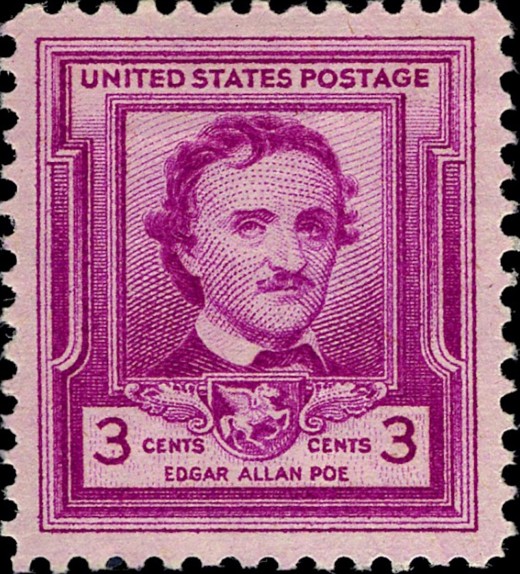
This content is accurate and true to the best of the author’s knowledge and is not meant to substitute for formal and individualized advice from a qualified professional.
© 2025 Linda Sue Grimes

